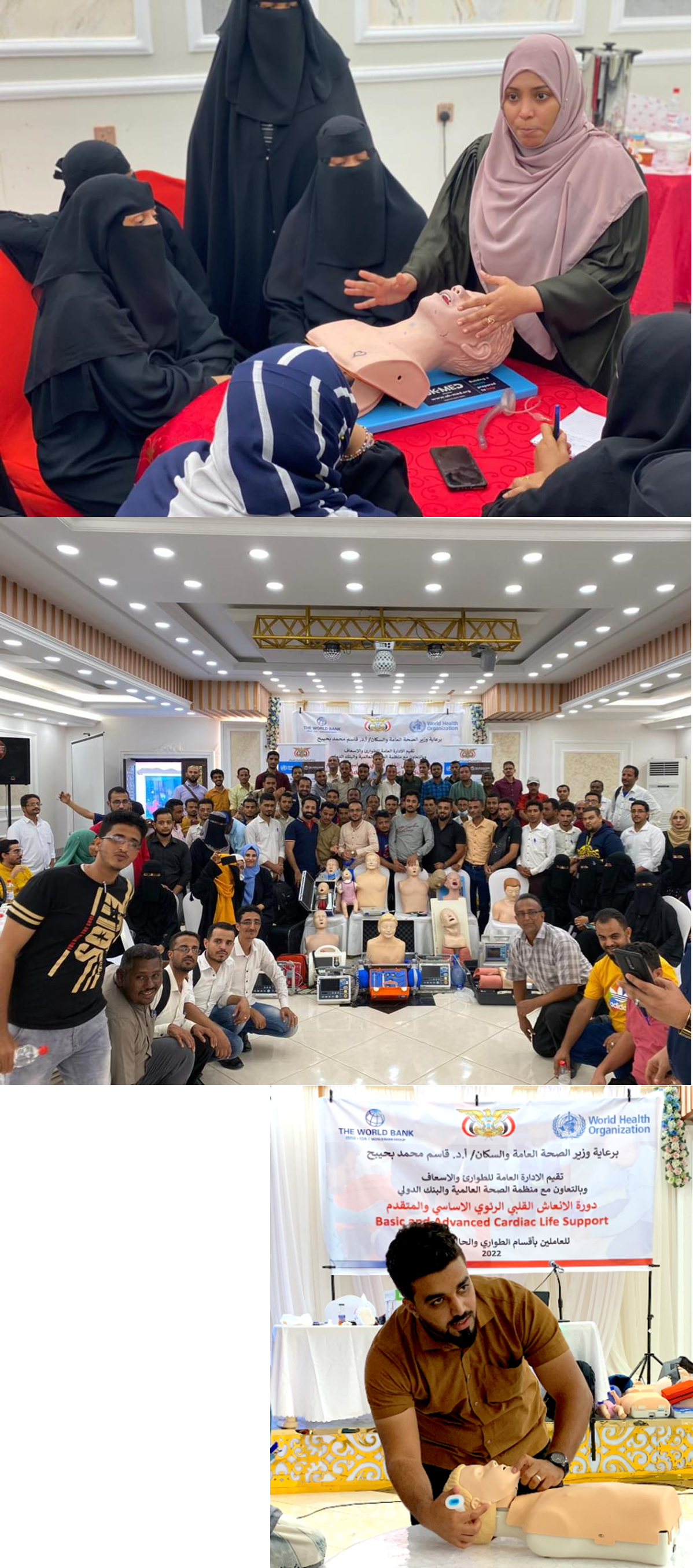
Aden and Sana’a, 22 November 2022 – The COVID-19 pandemic reaffirmed for the world the importance of health systems having strong intensive care capacities in place to save lives.
As part of building back better after the pandemic, WHO and the World Bank, through the Yemen COVID-19 Response Project (YCRP) have trained more than 1200 health workers in recent months to provide life-saving care to COVID-19 patients experiencing severe illness. The training will also help to build critical skills needed to save lives in emergencies.
Some efforts have been made to understand the gaps in emergency and ICU care capacities in Yemen. For example, a study published in 2022, surveyed 200 Yemeni nurses and identified that fewer than 41% had been trained in basic life support and around 75% could not recognize the correct chest compression rate. To address observed shortcomings, WHO launched a nationwide effort to dramatically improve knowledge of basic life support and advanced cardiac life support among health workers in the public sector.
Over the course of 3 months, 18 group training sessions were delivered in Sana’a and 4 week-long sessions in Aden. This resulted in training 230 doctors and 808 nurses in basic life support and advanced cardiac life support and 260 ambulance drivers in basic life support.
During delivery of the training, participation of female health workers was monitored and advocated for, with the result that by the fourth batch of trainees in Aden, female health workers accounted for 65% of participants. Overall female doctors and nurses accounted for 33% of the trainees. By location, female health workers accounted for 19% of participants in Sana’a and 43% in Aden. To improve on this in future, WHO is working with the authorities to reach 50% female participation in training with the World Bank’s support, and in Aden a focal point has been nominated to help in achieving this target.
In Sana’a, the average pre-test result was 44% and post-test was 80%. Interim results from Aden showed a pre-test average of 57% and post-test increasing to 88%. In feedback forms, 252 participants evaluated the training. Of them, 48% received BLS for the first time, 99% now feel confident to perform CPR and 100% are willing to share their knowledge with their colleagues.
The investments in basic and advanced life support training build on WHO’s 9-week national critical care training, which was also conducted under Yemen's COVID-19 Response Project, for 118 doctors and nurses across Yemen. The basic life support/advanced cardiac life support training is delivered by master trainers who are specialists in emergency and critical care, assisted by selected potential trainers from the national critical care training.
Going forward, the trainers are working on cascading BLS and ACLS skills to more health workers across Yemen’s 22 governorates. This work is planned to continue under the Emergency Human Capital Project (EHCP) with the World Bank’s support.
Learn more
Alkubati, S.A., McClean, C., Yu, R. et al. Basic life support knowledge in a war-torn country: a survey of nurses in Yemen. BMC Nurs 21, 141, 2022 https://bmcnurs.biomedcentral.com/articles/10.1186/s12912-022-00923-0
Related links
Trainees take immediate proactive steps to cascade life-saving skills
Texts from the field: life-saving impacts of basic and advanced life support training in Yemen


